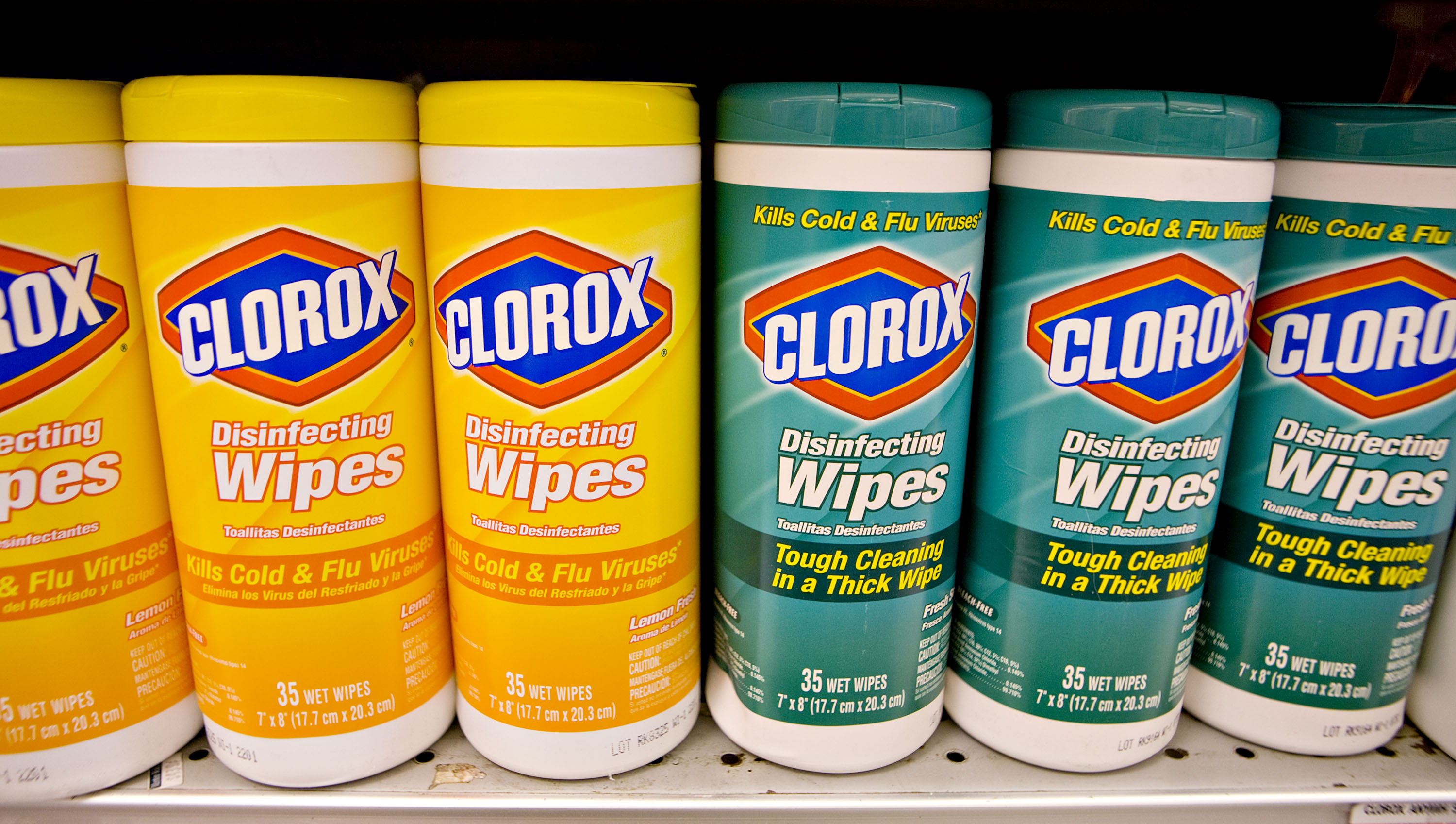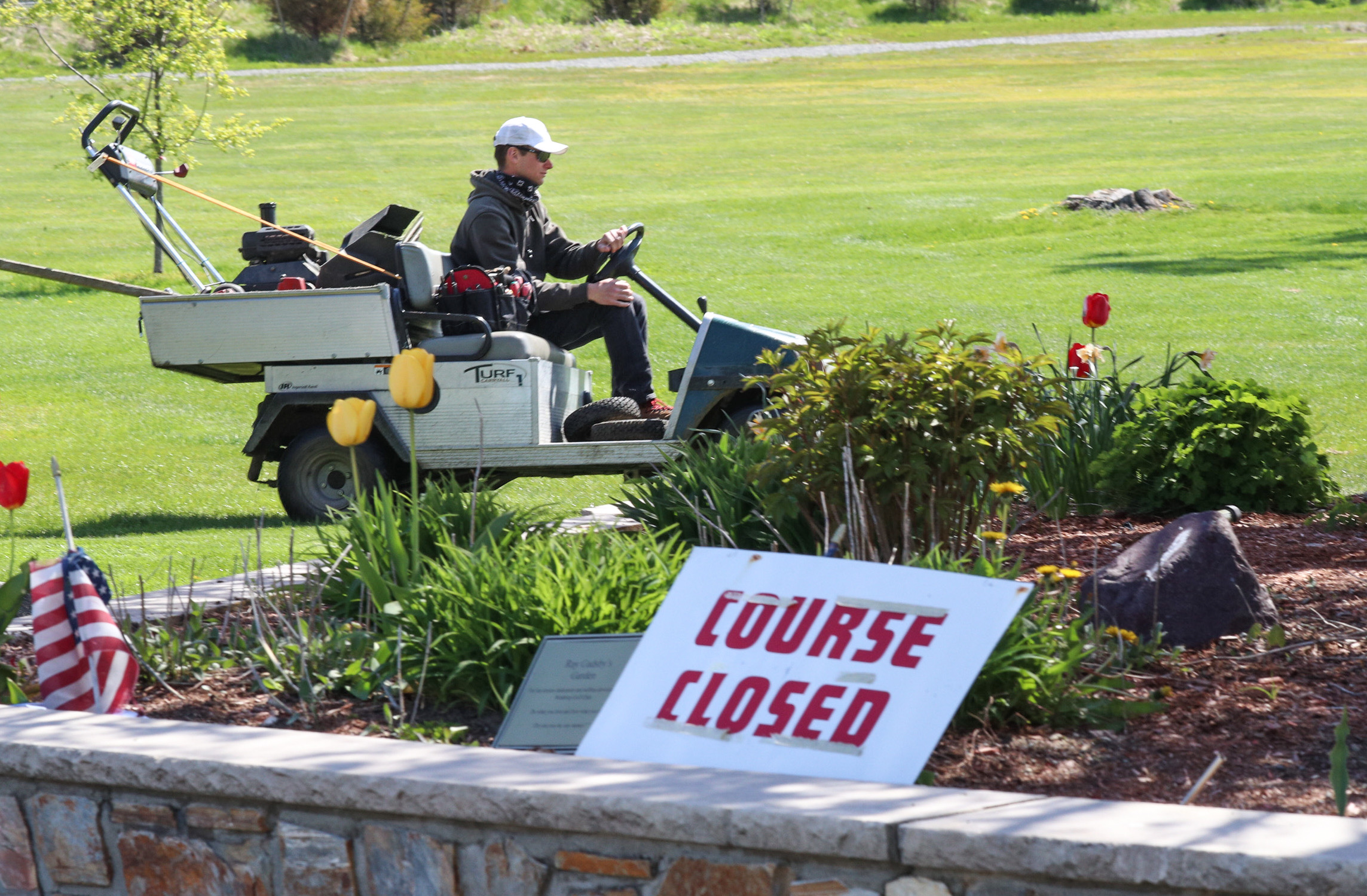Here's a look at the latest news around New England related to the coronavirus pandemic:
MASSACHUSETTS
Massachusetts Gov. Charlie Baker on Wednesday said the state could begin reopening on May 18 -- when the closure of non-essential businesses is set to expire -- but only if the number of coronavirus patients at local hospitals continues to fall.
"Our goal, starting on May 18, is to begin reopening certain types of businesses in a limited fashion where it can be done more safely than under normal operations," Baker said at a news conference at Gillette Stadium, where he attended a swearing-in ceremony for new state troopers.
"But this phased-in process can't begin until we see sustained downward trends" in the battle against the coronavirus, the governor said.
All Massachusetts residents are now required to wear masks or facial coverings when in public.
An executive order signed by Baker last week took effect Wednesday mandating the use of masks when individuals are not able to socially distance themselves from others.
Under the order, masks must be worn in grocery stores and pharmacies, on public transit and in cabs, taxis and ride-hailing services. The order also allows store owners to deny entry to anyone not wearing a mask.
Those who refuse could face fines as high as $300.
Children under 2 are exempt, as are those with certain medical conditions. The use of masks is key to help slow the spread of the coronavirus, Baker said Wednesday.
Gov. Charlie Baker is expected to make an announcement Thursday allowing golf courses to reopen, a source tells NBC10 Boston and NECN.
Courses in Massachusetts have been closed since mid-March, when they were deemed non-essential businesses, but they could be allowed to open as early as this weekend, the source said.
Sources say a decision from the governor could come as early as Thursday morning.
Voters would have more options to cast ballots under legislation proposed by Galvin.
Under the proposal, any Massachusetts voter could choose to vote by mail in the Sept. 1 primary and the Nov. 3 general election.
The plan would allow for 18 days of early voting for the November election, including two weekends, as well as seven days of early voting ahead of the September primary.
MAINE
A Portland meat-processing plant where 51 workers tested positive for the coronavirus is set to reopen.
The Tyson Foods plant, which shut down on Friday after an outbreak was discovered, is getting back to business on Thursday after all workers and contractors were tested.
The company said it relaxed its attendance policy to encourage the workforce, mostly made of up immigrants, to stay home if workers are sick. Tyson has paid workers while the plant was idle.
Democratic Gov. Janet Mills announced Wednesday the creation of a panel to advise her on the state's economic recovery, and suggested there could be regional variations in the pace of reopening the economy.
She also brushed aside complaints by Republicans that her emergency powers should be stripped away, saying she will not let "partisan politics start to draw lines" in the middle of a pandemic.
The Economic Recovery Committee will be led by Josh Broder, CEO of Tilson, and former state economist Laurie Lachance, president of Thomas College, the governor told reporters in Augusta, Mills said. The panel will be tasked with delivering a preliminary report by July 15.
VERMONT
Vermont Gov. Phil Scott says Vermonters will be able to enjoy more outdoor activities and small get-togethers as part of the state's gradual reopening, but the state of emergency imposed in March to confront the COVID-19 pandemic will be extended.
More Coronavirus News
Under the relaxed rules, small gatherings of 10 or less among trusted friends or families will be allowed, although he urged people who have preexisting conditions that makes them more vulnerable to complications from COVID-19 to stay home.
More outdoor activities that don't involve close personal contact are also allowed.
The Vermont Department of Public Service is proposing a plan to provide broadband internet service to everyone in the state.
Commissioner June Tierney says the internet is necessary infrastructure during the COVID-19 pandemic.
Thousands of Vermonters are studying or working from home, but the department says about 23% of the state doesn't have access to high-speed internet services. That's about 70,000 homes and businesses.
The emergency plan could cost about $300 million, but it assumes Vermont will receive more federal aid. In other developments, a judge won't free a 73-year-old murder suspect whose lawyers argued he should be released because of risks from the virus.
NEW HAMPSHIRE
New Hampshire is expanding coronavirus testing for the general public and in nursing homes as COVID-19 deaths hit a daily high of 19.
All of the new deaths announced Wednesday occurred among residents of nursing homes or other long-term care facilities.
Such residents make up more than three-quarters of the state's 111 deaths, and officials are working to greatly expand testing at the facilities.
Meanwhile, starting Thursday, anyone with symptoms can get tested without a referral, as can asymptomatic health care workers, people over 60 and those with underlying medical conditions.
The New Hampshire Department of Education has released guidance to school districts about how to plan graduation ceremonies in light of the state's prohibition on gatherings of more than 10 people.
Officials said schools should consider limiting audience size to a maximum of two guests per student depending on the ability to practice safe social distancing.
The department said one option could be to have people stay in their cars, and graduates would exit in small, appropriately spaced groups, to get their diplomas. Diplomas also could be distributed "drive-up'' style, or participants could be spread out among classrooms within a school.
RHODE ISLAND
Rhode Island is rolling out an aggressive coronavirus testing program that Gov. Gina Raimondo said Wednesday will help stamp out future outbreaks of the disease.
Aggressive testing is important as she anticipates ending her stay-at-home order and starting a phased reopening of the economy this weekend.
The state is already testing about 3,000 people per day and has tested a higher proportion of its population than any other state, the Democrat said at her daily news conference.
The goal is to test about 10,000 people per day by July and 20,000 people per day by September, using tests that can return results within 48 hours, so schools and colleges can reopen.
The state is launching a coronavirus antibody testing program to get a better idea of how widespread the disease is, the governor said.
The state will randomly select 5,000 Rhode Island residents to get the test at one of four Stop & Shop supermarket locations around the state. She stressed that participation is voluntary.
Antibody testing does not tell whether someone is currently infected with the virus, but whether they were infected in the past.
By testing broad populations for antibodies, researchers hope to learn how widely the virus spread and how deadly it really is.
CONNECTICUT
Connecticut's colleges and universities may open at their discretion, in a phased-in way between May 20 and September 1, with mass COVID-19 testing of students living on residential campuses, under a package of recommendations submitted Wednesday to Gov. Ned Lamont.
The plan, however, depends on certain benchmarks being met, such as a steady decline in hospitalizations in Connecticut and colleges and universities having adequate supplies of tests, face masks and personal protective equipment.
Approximately 190,000 students are enrolled in higher education institutions across Connecticut. They employ about 45,000 people.



